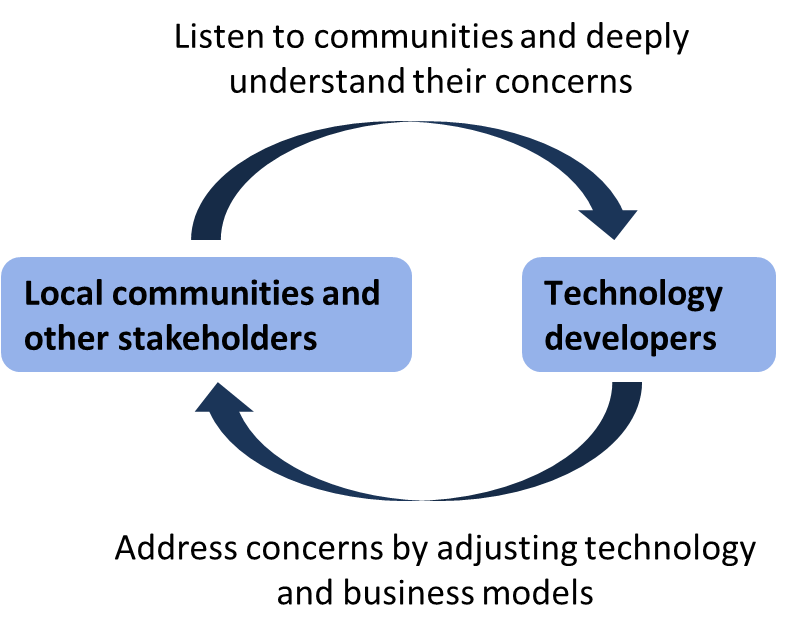Community Engagement
For promising new energy technologies to achieve meaningful scale, they not only have to be technically and financially viable, but also address the full range of societal needs and concerns. Technologies that fail to address these aspects risk public rejection through increased capital costs, litigation costs, and regulatory burdens. Conventional approaches to improve public acceptance (such as technical modifications, regulatory reforms or better public relations or education) are often insufficient. We work to provide communities with a voice in their energy futures, starting in the early phases of technology development, so promising technologies are deployed expeditiously in a way that benefits all Americans.
